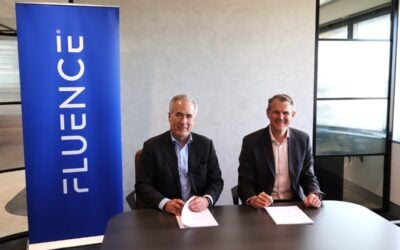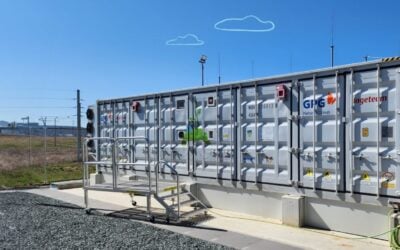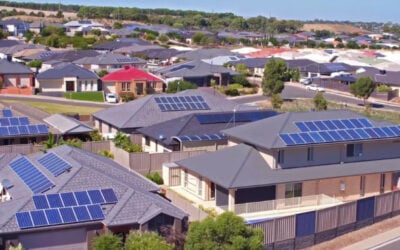The top funding deal was driven by German utility RWE's involvement in Stem's Series C round. Image: Mercom Capital Group.
Financial activity in the third quarter of this year was slightly flatter than Q2 for smart grid, batteries, energy storage and energy efficiency, but the average deal size grew, according to Mercom Capital Group.
The Texas-headquartered firm issues quarterly reports for funding and mergers and acquisitions (M&A), also issuing regular reports on the solar industry and other sectors. Bundling smart grid, storage and efficiency together in one report, the latest edition of which was published today, Mercom found that battery and energy storage companies have so far this year raised US$290 million. This included US$96 million of funding that was raised from nine venture capital (VC) deals during the most recent quarter.
Enjoy 12 months of exclusive analysis
- Regular insight and analysis of the industry’s biggest developments
- In-depth interviews with the industry’s leading figures
- Annual digital subscription to the PV Tech Power journal
- Discounts on Solar Media’s portfolio of events, in-person and virtual
This was a drop of US$30 million from the second quarter, when funding from venture capital (VC) groups for storage companies was at US$126 million across 13 deals. However, the average deal size exceeded the US$10 million mark – around US$10.6 million for the quarter, compared to US$9.7 million in Q2 2015.
In an interview with PV Tech Storage in July to explain the firm’s findings in the second quarter, Mercom head Raj Prabhu had said that a large portion (US$58.1 million) was made up by a single deal, by flow battery maker VionX. This contributed in large part to Q2’s high total, around double that of the first quarter’s.
This time around, the biggest single deal was that of German utility RWE’s investment in US commercial and industrial (C&I) energy storage provider Stem Inc. RWE put US$33 million into Stem through its RWE Supply & Trading arm. Stem mostly deploys storage in the US to C&I customers on a business model of reducing the customer’s energy bills through peak shaving, but also uses its devices to play into grid balancing markets, by aggregating a number of interconnected behind-the-meter systems. The company also spoke to PV Tech Storage earlier this year about the potential it saw for aggregated, so-called ‘virtual power plants’ in other markets including Australia, Japan and the EU.
According to Mercom, the US accounted for “nearly all” activity in batteries and energy storage, constituting US$94 million across seven deals.
There was also a drop in debt and public market financing, with just four deals worth US$48 million, compared to US$69 million in seven deals in the previous quarter – although obviously it meant each deal averaged out at US$12 million in value each in Q3, up from just under a US$10 million average in Q2.
‘Governator’ and Tesla-backers raise energy storage profile
In the Q2 interview, Raj Prabhu had also talked about some of the recent high profile investors into the energy storage space, including action movie star and former governor of California Arnold Schwarzenegger. Advanced Microgrid Solutions, the company in which Schwarzenegger and others have invested around US$18 million over a Series A funding round, featured again in the “top five VC funded companies” list in the Mercom report.
Schwarzenegger’s interest is undoubtedly piquing curiosity and raising the profile of storage technology, but also of interest to technology and clean energy industry followers will be the involvement of DBL Capital in two VC funding rounds. The firm’s two founders, Nancy Pfund and Ihra Ehrenpreis, were also early investors in Tesla and also hold an interest in SolarCity – DBL Capital’s remit is to find profitable ventures that also have a positive social impact. In the most recent quarter, DBL also invested in a Series D funding round for grid-scale storage company Primus Power, which uses a zinc bromide battery chemistry to provide long duration storage. Primus recently signed a deal to deploy around 1,250 of its batteries in Kazakhstan (25MW/100MWh). Other investors at the time included the Russia-Kazakhstan Nanotechnology Fund (RKNF), owned by the Series D round’s leader, clean tech venture capital fund I2BF Global Ventures.
In this quarter, energy storage and batteries could not match energy efficiency and smart grid sectors however, which have raised year-to-date totals of US$667 million and US$370 million respectively.






